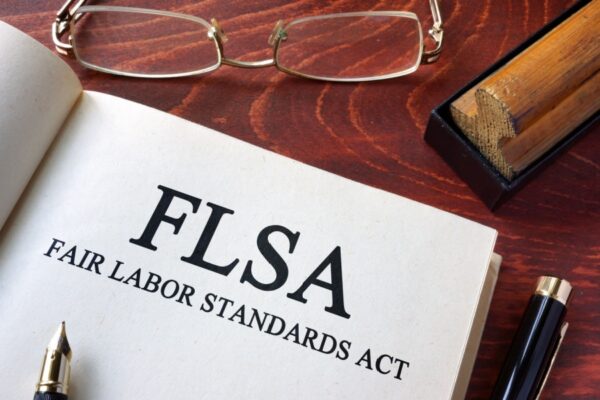Renewable energy businesses are dedicated to preserving the environment by harnessing clean, sustainable energy sources or offering the necessary tools and services to support such environmentally conscious companies.
Whether you’re a solar panel owner, solar panel contractor, an investor, or an operator in the renewable energy sector, understanding the insurance tailored to your needs is essential.
What is Renewable Energy Insurance?
Protection from financial losses associated with the generation, transmission, and storage of renewable energy sources like solar, wind, and hydroelectric power is provided by renewable energy insurance. This coverage protects you from unforeseen setbacks affecting energy generation, transmission, and storage. Consider being protected from storms, fire, floods, and other hazards. Even energy disruptions caused by terrorism, sabotage, and vandalism are protected.
These policies frequently cover liabilities for property damage, business interruption, defective products, and pollution. They provide more than just protection; renewable energy insurance gives you the financial security you need to launch eco-friendly projects.
Who Should Invest in Renewable Energy Insurance?
As the renewable energy sector continues to grow, so does the need for safeguarding these investments against potential risks. Renewable energy insurance offers a safety net that ensures the longevity and profitability of projects. Let’s discuss who should consider investing in renewable energy insurance:
1. Renewable Energy Project Developers and Owners
Those who initiate, plan, and operate renewable energy projects, such as solar farms, wind turbines, and hydroelectric plants, must invest in insurance. These stakeholders face various risks, including equipment failure, natural disasters, and fluctuations in energy production, which could lead to substantial financial losses.
2. Investors and Financial Institutions
Financial institutions and investors that fund renewable energy projects have a vested interest in their success. Renewable energy insurance mitigates the risks associated with project delays, cost overruns, and revenue shortfalls. It assures these stakeholders that their investments are protected.
3. Energy Utilities and Operators
Utilities integrating renewable energy sources into their energy generation portfolio can benefit from insurance coverage. Grid outages, transmission issues, and unexpected breakdowns can disrupt energy production and delivery. Renewable energy insurance helps utilities manage these uncertainties and maintain a consistent supply.
4. Manufacturers and Suppliers
Companies involved in the manufacturing and supply of renewable energy equipment, such as solar panels and wind turbine components, can protect themselves from liability issues arising from faulty products. Insurance coverage can address legal claims, product recalls, and reputational damage.
5. Contractors and Service Providers
Installation, maintenance, and service providers play a critical role in ensuring the smooth operation of renewable energy projects. Insurance can shield them from liability in accidents, injuries, or inadequate workmanship.
6. Government Entities and Regulatory Bodies
Government agencies and regulatory bodies promoting renewable energy adoption can benefit from insurance coverage for projects they sponsor or oversee. This ensures public funds are protected in case of unforeseen project disruptions.
7. Power Purchase Agreement (PPA) Parties
Both buyers and sellers in power purchase agreements can find value in renewable energy insurance. PPA buyers secure a consistent energy supply, while sellers ensure revenue stability during challenging operational periods.
8. Project Contractors and Consultants
Professionals in project design, engineering, and consulting services can safeguard their reputation and financial interests through insurance coverage against errors, omissions, or project failures.
9. Environmental NGOs and Advocacy Groups
Organizations advocating for renewable energy adoption can indirectly benefit from insurance coverage by supporting projects with a safety net and promoting sustainable practices while minimizing financial risks.
10. Landowners and Leaseholders
Individuals or entities who lease land for renewable energy projects can invest in insurance to protect their property from damage caused by project operations and secure lease payment obligations.
Typical Insurance Coverages for Renewable Energy
The following are typical insurance coverages for renewable energy:
1. Professional Liability Insurance
Professional Liability Insurance, also known as errors and omissions (E&O) insurance, is vital for businesses providing professional services or expertise. This insurance safeguards against negligence claims, mistakes, or inadequate work resulting in clients’ financial loss. It goes beyond general liability insurance, which typically covers physical damage and bodily injury.
2. General Liability Insurance
General Liability Insurance is a fundamental coverage that businesses across various industries, including renewable energy, rely on to protect themselves from potential risks. This insurance is designed to cover third-party claims of bodily injury, property damage, and personal injury that might occur on your business premises or as a result of your business operations.
For renewable energy businesses, this coverage can prove crucial. It can offer financial protection in scenarios such as accidents during installation or maintenance work, property damage caused by your equipment, or even injuries to visitors on your solar farm or wind turbine site.
3. Pollution Liability Insurance
Pollution Liability Insurance is a specialized coverage that addresses the unique risks associated with environmental damage and pollution caused by business activities. This insurance is particularly relevant for companies operating in industries like renewable energy, where environmental impact is a concern.
Renewable energy businesses, such as solar farms or wind energy projects, often handle materials that could harm the environment if not managed properly. Pollution Liability Insurance offers protection against claims and legal actions arising from pollution-related incidents, such as accidental spills of hazardous materials, improper waste disposal, or contamination of air, soil, or water.
4. Commercial Property Insurance
Commercial Property Insurance is a crucial coverage that provides financial protection for the physical assets of a business. This insurance becomes vital for companies operating in industries like renewable energy, where substantial investments are made in equipment and infrastructure.
In the context of renewable energy businesses, Commercial Property Insurance covers the physical assets essential for operations, such as solar panels, wind turbines, control systems, and other infrastructure. This coverage extends beyond just damage due to fire or natural disasters; it also includes protection against theft, vandalism, and even business interruption caused by covered perils.
5. Cyber Liability Insurance
Cyber Liability Insurance is a critical coverage that addresses the escalating risks associated with cyber threats and data breaches in today’s digital landscape. This insurance protects businesses, including those in the renewable energy sector, that rely on technology and data storage.
In renewable energy, where interconnected systems and data play a significant role, Cyber Liability Insurance safeguards against potential data breaches, hacking attempts, and other cyber-related incidents that could compromise sensitive information or disrupt operations. This coverage assists in covering expenses related to data recovery, legal fees, customer notifications, and potential liability arising from these cyber incidents.
6. Business Owner’s Policy
A Business Owner’s Policy (BOP) is a comprehensive insurance package tailored to the needs of small to medium-sized businesses, including those in the renewable energy sector. This policy combines essential coverages, including general liability and property insurance, into a single package, offering convenience and cost-efficiency.
For businesses in renewable energy, a BOP can provide coverage for property damage, bodily injury claims, and even business interruption due to covered perils. It’s designed to address common risks such as equipment damage, on-site accidents, and property-related liabilities. While the components can vary based on the specific needs of each business, a BOP generally offers a well-rounded protection foundation for renewable energy companies, helping them manage unexpected events while streamlining their insurance coverage.
7. Commercial Auto Insurance
Commercial Auto Insurance is crucial for businesses, including those in the renewable energy sector, that utilize vehicles for their operations. This insurance protects in case of accidents or damage involving company vehicles. In the context of renewable energy, where transportation of equipment and maintenance crews is common, Commercial Auto Insurance covers both property damage and bodily injury liabilities that might arise from vehicular accidents. This coverage not only safeguards your assets but also helps ensure the continuity of your operations by addressing potential financial and legal repercussions resulting from auto-related incidents.
8. Workers’ Compensation Insurance
Workers’ Compensation Insurance is a vital coverage that offers financial protection for employees and businesses in case of workplace injuries or illnesses. This insurance is particularly important for companies, including those in the renewable energy sector, where physical labor and potential hazards are present. It benefits employees who experience work-related injuries or illnesses, covering medical expenses, rehabilitation costs, and lost wages. In return, employees typically waive their right to sue the employer for these injuries. Workers’ Compensation Insurance supports injured workers and helps businesses manage the costs and potential legal consequences of workplace accidents, fostering a safer work environment overall.
9. Builder’s Risk Policy
A Builder’s Risk Policy is a specialized insurance designed to protect construction projects, including those in the renewable energy sector, from risks and potential losses. This coverage applies during construction and protects the project’s materials, equipment, and structures against fire, theft, vandalism, and natural disasters. For renewable energy projects like solar farms or wind energy installations, where substantial investments are made in constructing infrastructure, a Builder’s Risk Policy becomes essential. It safeguards against unexpected setbacks that could impact project timelines and budgets. This policy helps mitigate financial risks, ensuring that construction endeavors proceed smoothly and reach completion despite unforeseen challenges.
10. Umbrella Liability Insurance
Umbrella Liability Insurance is a critical coverage that provides an extra layer of protection for businesses, including those in the renewable energy sector. This insurance goes beyond the limits of primary liability policies, such as general and auto liability, offering higher coverage limits and extending protection against a wider range of risks. Umbrella Liability Insurance can be invaluable for renewable energy companies, often facing unique and complex liabilities. It provides additional financial security in the event of large claims or lawsuits exceeding underlying policies’ limits. This coverage is a safety net, safeguarding businesses from potential financial ruin due to unexpected and costly legal actions.
Feel free to reach out if you need clarification on the coverage you need or if your renewable energy insurance needs are unique! You can ring us at (800) 383-8283 or email us using our contact page. We love having a chat and helping you out. After all, we believe in the power of a good old-fashioned conversation.
Material posted on this website is for informational purposes only and does not constitute a legal opinion or medical advice. Contact your legal representative or medical professional for information specific to your legal or medical needs.




